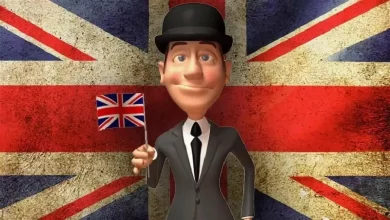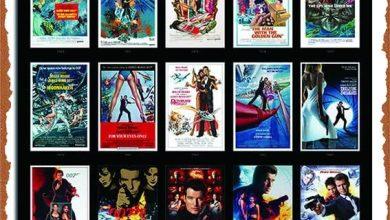Daniel Craig (007) receiving a KBE in the New Year’s Honours list.
is this a brilliant joke by the Queen as it's an award usually given to spies and diplomats?

In a surprising turn of events, the New Year’s Honours list included an unexpected name: Daniel Craig, the acclaimed actor renowned for his portrayal of James Bond, agent 007. Craig was awarded a Knighthood of the Order of the British Empire (KBE), an honor traditionally associated with spies and diplomats. This decision has sparked widespread speculation about whether it is a brilliant joke by the Queen or a departure from the established norms surrounding the award. In this article, we delve into the significance of Daniel Craig receiving a KBE, explore the historical association of the honor with spies and diplomats, examine the impact of his portrayal of James Bond, and discuss the implications of the Queen’s decision.
Key Takeaways
- Daniel Craig’s receipt of a KBE highlights the profound impact of his portrayal of James Bond on popular culture and the film industry.
- The KBE has historically been associated with spies and diplomats due to its connections with espionage and international relations.
- The Queen’s decision to award Daniel Craig with a KBE could be seen as a reflection of her sense of humor and a willingness to embrace contemporary interpretations of traditional honors.
- This recognition challenges the traditional criteria for the KBE and opens up the possibility of honoring individuals who have made significant cultural contributions.
- The inclusion of Daniel Craig in the New Year’s Honours list demonstrates the monarchy’s ability to adapt to societal changes and engage with modern culture.
The KBE and Its Historic Association with Spies and Diplomats
The KBE, established in 1917, is one of the highest civilian honors bestowed by the British monarch. It recognizes individuals who have made outstanding contributions to the arts, sciences, business, public service, and other fields. Traditionally, this honor has been associated with diplomats and spies due to its historical ties to espionage and international relations.
Over the years, numerous intelligence officers and diplomats have been recipients of the KBE, showcasing its deep-rooted connection to espionage. Notable figures such as Sir Francis Walsingham, the celebrated spymaster of Queen Elizabeth I, and Sir Mansfield Smith-Cumming, the first head of MI6, have been honored with this prestigious title. Thus, the association of the KBE with spies and diplomats is well-established.
Daniel Craig: A Modern Icon of Espionage
Daniel Craig’s portrayal of James Bond in the iconic film franchise has redefined the image of a modern-day spy. With his rugged charm, impeccable style, and intense performances, Craig has breathed new life into the character, captivating audiences worldwide. His portrayal of Bond has not only revived the franchise but also propelled it to unprecedented heights of success.
By honoring Daniel Craig with a KBE, the Queen acknowledges the significant impact the James Bond films have had on popular culture and the film industry. The franchise has become a global phenomenon, captivating generations of moviegoers and making James Bond an enduring symbol of espionage.
An Unexpected Twist: The Queen’s Sense of Humor?
The decision to award Daniel Craig with a KBE raises intriguing questions about the Queen’s sense of humor and her willingness to embrace contemporary interpretations of traditional honors. It is no secret that the British monarchy has evolved over time, adapting to societal changes while retaining its historical significance. This unexpected choice can be seen as a reflection of the monarchy’s ability to engage with modern culture.
By bestowing this honor upon Daniel Craig, the Queen may be playfully acknowledging the fictional world of James Bond and its impact on the public imagination. It is an acknowledgment of the enduring popularity of the character and the entertainment value it brings to millions worldwide.
A Departure from Tradition or an Evolving Perspective?
While some may view the Queen’s decision as a departure from tradition, others see it as a sign of a monarchy willing to adapt and embrace new narratives. The recognition of Daniel Craig’s contribution to the James Bond franchise through a KBE challenges the notion that this honor is solely reserved for diplomats and spies. It opens up the possibility of honoring individuals who have made significant cultural contributions, blurring the lines between art, entertainment, and the traditional domains associated with the KBE.
The inclusion of Daniel Craig in the New Year’s Honours list demonstrates the monarchy’s ability to evolve with the times. It acknowledges the changing landscape of the entertainment industry and the powerful influence it wields over popular culture. This decision invites further discussion about the criteria for receiving such honors and the wider societal impact of artistic contributions.
FAQ
1. What is the significance of Daniel Craig receiving a KBE?
Daniel Craig receiving a KBE holds significant cultural and artistic significance. As an actor, Craig has made an indelible mark on the film industry through his portrayal of James Bond, agent 007. The KBE recognizes his exceptional contribution to the arts and acknowledges the impact of the James Bond franchise on popular culture. It symbolizes the recognition of Craig’s talent, dedication, and the enduring legacy of the character he brought to life.
2. Why is the KBE traditionally associated with spies and diplomats?
The traditional association of the KBE with spies and diplomats can be traced back to its historical roots. Established in 1917, the honor was initially designed to acknowledge individuals who made significant contributions to the British Empire, particularly in the realms of diplomacy and espionage. Over time, this association solidified as notable figures from these fields received the KBE. While the honor has expanded to include achievements in various other fields, its initial connection with spies and diplomats remains a prominent aspect of its history.
3. How does Daniel Craig’s portrayal of James Bond differ from previous actors?
Daniel Craig’s portrayal of James Bond differs in several ways from previous actors who portrayed the iconic spy. Craig’s interpretation brought a gritty, raw, and more realistic edge to the character. His Bond is marked by a brooding intensity, emotional depth, and physical prowess that resonated with audiences. By presenting a more vulnerable and complex version of Bond, Craig breathed new life into the franchise and showcased a different facet of the character’s personality and motivations.
4. Does the Queen’s decision to award Daniel Craig reflect a sense of humor?
The Queen’s decision to award Daniel Craig with a KBE can be interpreted as a reflection of her sense of humor. By recognizing the actor who played the iconic James Bond, a fictional spy, with an honor traditionally associated with spies and diplomats, it indicates a lighthearted acknowledgement of the cultural impact of the Bond franchise. It suggests that the Queen appreciates the entertainment value and global popularity of the character, showcasing a sense of humor and an ability to embrace contemporary interpretations of traditional honors.
5. Does Daniel Craig’s KBE challenge the traditional criteria for the honor?
Daniel Craig’s KBE does challenge the traditional criteria for the honor to some extent. While the KBE has historically been associated with diplomats and spies, Craig’s recognition opens up the possibility of honoring individuals who have made significant cultural contributions through their artistic endeavors. It suggests that the boundaries of the honor are expanding to include achievements in the entertainment industry and recognize the broader impact of popular culture. This expansion reflects the evolving perspectives and recognition of the diverse contributions individuals can make to society.
6. How has the James Bond franchise influenced popular culture?
The James Bond franchise has had a profound influence on popular culture. Since its inception, the franchise has captivated audiences with its thrilling espionage narratives, iconic characters, and stylish presentation. James Bond has become a cultural icon, synonymous with suave sophistication, action-packed adventures, and cutting-edge gadgets. The franchise has not only shaped the spy genre but has also influenced fashion, music, and cinematic storytelling. It has inspired countless imitations and parodies while setting new standards for the portrayal of spies in popular media.
7. What does Daniel Craig’s KBE mean for the future of honors in the entertainment industry?
Daniel Craig’s KBE could signify a shift in the future of honors in the entertainment industry. The recognition of Craig’s contribution to the James Bond franchise acknowledges the significant impact of artistic endeavors on society and popular culture. It opens up the possibility of honoring individuals from the entertainment industry who have made substantial cultural contributions. This shift could signal a broader recognition of the arts and entertainment as essential elements of societal progress and elevate the status of artists, actors, and filmmakers in the realm of national honors.
8. How has the British monarchy adapted to societal changes over time?
The British monarchy has adapted to societal changes over time by striking a delicate balance between tradition and evolution. Throughout history, the monarchy has demonstrated its ability to adjust to shifting societal norms, public expectations, and cultural developments. The inclusion of Daniel Craig in the New Year’s Honours list reflects this adaptability, as it recognizes the impact of modern popular culture and reflects the monarchy’s engagement with contemporary narratives. The ability to embrace change while maintaining historical significance has helped the monarchy retain its relevance and connection with the public.
9. Does Daniel Craig’s KBE honor the character of James Bond or the actor himself?
Daniel Craig’s KBE primarily honors the actor himself, acknowledging his exceptional contributions to the arts through his portrayal of James Bond. While the character of James Bond is iconic and has played a significant role in popular culture, the KBE is awarded to individuals who have made outstanding contributions to their respective fields. Therefore, the honor recognizes Daniel Craig’s talent, dedication, and the impact he has had on the film industry and global audiences through his nuanced portrayal of the legendary spy.
10. How might Daniel Craig’s KBE impact future actors playing James Bond?
Daniel Craig’s KBE sets a notable precedent for future actors who take on the role of James Bond. It highlights the significance and cultural impact of portraying such an iconic character. The recognition bestowed upon Craig emphasizes the responsibility and influence that comes with portraying James Bond, further elevating the status of the character and the franchise. Future actors may feel inspired by Craig’s honor to approach the role with a similar level of dedication and commitment, understanding the potential for their performances to leave a lasting impact on both the film industry and popular culture.
Conclusion
Daniel Craig receiving a KBE raises intriguing questions about the Queen’s intentions and the evolving nature of traditional honors. While the KBE has historically been associated with spies and diplomats, Craig’s recognition acknowledges the cultural impact of the James Bond franchise and the broader influence of popular culture. It reflects a monarchy willing to adapt and engage with contemporary narratives, embracing the changing landscape of the entertainment industry. The Queen’s decision opens up possibilities for future honors, blurring the lines between traditional domains and recognizing the diverse contributions individuals can make to society. Daniel Craig’s KBE not only celebrates his exceptional talent but also signifies the evolving role of the arts and entertainment in the fabric of national recognition.








